
Who Killed Cain Revealed
The death of Cain was the world’s first perfect crime. In fact, it was so well done that even today, most Biblical scholars read the passages concerning his death but never notice the clues given as to why and how he died and who killed him. In order to solve this mystery, we need to go back to Genesis and meet the suspects.
God planted a Garden in a greater land mass referred to as Eden (Genesis 2:8). The topography of the Garden was such that it created a semi-tropical micro climate complete with fresh running water. The plantings that God provided included a wide variety of fruit and nut trees, vegetables, herbs and spices (Genesis 1:11-12; Genesis 2:18; Genesis 2:29). The Garden was also adorned with trees and shrubs that provided year-round aromas from the blooms of fragrant flowers and trees (Genesis 2:9). There were shaded forest areas and open green fields filled with sunlight. There were hills and overlooks to enjoy the fresh breezes and views of the spectacular beauty of this vast garden system. What lay beyond the steep surrounding mountain ranges that encircled the garden was of no concern or interest for its human inhabitants. The two people were of course the man, Adam and his wife, Eve.

The term garden means that the planted area was contained by a border of some sort. In this case it was no doubt a steep mountain range that surrounded this plot of land with the garden located in its valley. The mountain range apparently horseshoed around this valley with a narrow opening at one end allowing the fresh waters that streamed from the mountain springs and pooled in the valley to exit and combine with other great rivers (Genesis 2:10-14). This opening at one end of the valley also allowed wildlife to enter and leave the garden at will. The naming of these animal visitors gave Adam one of several meaningful tasks to do with his time before the creation of Eve. Adam was instructed by God to “tend” the garden (Genesis 2:15). This term can be taken to mean that he was responsible for performing useful tasks to keep the garden in good order and allowed to move or grow more of those plants that were to his liking. This term can also suggest that he was to protect the garden. In other words, Adam was to spend his time exploring, enjoying and taking care of the garden, or valley and to be aware of his surroundings.
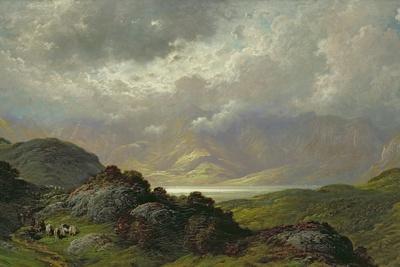
Scripture does not tell us what the world was like beyond the mountains of the garden, or outside the Land of Eden. We do not know if the topography of the valley was used only to create a unique and comfortable climate for the couple, or to keep out unwelcomed visitors, or both. The Bible does not specifically state that Adam and Eve were the first or only people that God created. What we are told is that the Triune Godhead made a conscious decision to intentionally and uniquely create two people whose bloodline would ultimately bring about Jesus, the prophesied Messiah of mankind (Genesis 1:26; Genesis 2:8). God formed or “molded” Adam and breathed into him both physical life and an eternal spirit of life. This was performed for some unknown reason outside of the Garden (Genesis 2:8; Genesis 2:15). God “built” or in today’s vernacular, cloned Eve from the DNA of Adam in the Garden (Genesis 2:21-22). God made Adam from the Earth as He did with all the animals. But God made Adam uniquely different from the animals. Adam not only received a physical body from God but also a physical mind of incredible capabilities that allowed him to contemplate his existence and to commune with God his Creator. He also received an eternal spirit or soul from God who is Himself a spiritual entity (Genesis 1:27; Genesis2:7). In this way, Adam was both physically like the animals yet intellectually superior to the animals as he was able to pass down knowledge to future generations and have a personal relationship with his Creator. Because he was endowed with an eternal spirit, he was physically mortal but spiritually eternal. The angels are also spiritually immortal but were create slightly lower than mankind (Psalm 8:5). In fact, we are told that followers of Christ will judge the angels (I Corinthians 6:3). After Adam's fall from grace because of sin, his original sin free body changed. He was once able to eat the fruit of the Tree of Life and extend his life in perpetuity. But because of his sin nature, he was now destine to age and experience physical death. Yet his spirit remained eternal. This in turn meant that the ultimate resting place of his eternal spirit depended on his relationship with his Creator. All people who have ever lived will one day be given immortal bodies to house their eternal spirits. Where a person will eternally reside is a choice only they can freely decide for themselves.
The Bible gives the order of the creation of life on the Earth starting with the tectonic plate upheavals that separated the land from the oceans. It then gives the order in which plant and animal life was created. Even though these events are listed in the exact same order that science has come to agree with, the Bible is not particularly interested in the sciences of astronomy, geology and biology. The Bible simply states that God created all matter, all life forms and this is all we need to know for now. As for mankind, the Bible begins with the creation of Adam, Eve and the birth of three of their children. If there was a pre-Adamic race of people, the Bible does not see this as a pertinent topic of discussion. Man may want an answer to the questions concerning microbial life on other planets. But the answer is of no consequence to living everyday life on Earth which is the focus of Scripture. The Bible wants mankind to stay focused on what God considers important. God wants mankind to have faith in Him and show that faith by obeying Him and loving their fellow man. God’s plans are eternally unfolding and all questions will be answered according to His timeline. The vast majority of the Bible was written as a book on spiritual guidance. An instruction manual given by the Creator to His creations to help them live a long full happy life. The choice to read and follow His instructions is a decision that He has given to mankind. All people will receive a just reward based on the life they lived both good and bad. The information in the Bible was never intended to serve as a science book detailing creation or a history narrative of the world that traces all the lineages of all people on earth. It only follows the bloodlines of Adam and the exploits of some of his more notable descendants in the direct lineage of Christ.

Adam was commanded by God not to eat the fruit of the Tree of Knowledge of good and evil. If he did, he would “surely die” (Genesis 2:17). Adam must have had some understanding of the concept of death or the threat of death would not have meant anything to him. At some point in time, God allowed the fallen angel Lucifer, now known as Satan the tempter or accuser, to enter the Garden and indwell a creature. In this way, Satan would have a physical presence with which to test Adam and Eve concerning their virtue (Genesis 3:1). They freely chose to eat the forbidden fruit, failed the test, and as promised God pronounced a series of curses on them, their offspring and the Earth. Adam and Eve were cursed by God in different ways for what they had done. The serpent was also cursed in several ways.
First, the original genetics of the creature Satan indwelled were altered such that while it originally had legs, now it would be made to crawl on the ground eating and breathing the dust of the Earth. The sight of the serpent would now frighten or repulse mankind and serve as a constant reminder of the reality of the fall of man (Genesis 3:14). Today, we can still see that while a snake’s skeleton clearly shows the remnants of once having legs, they are no longer genetically programed to develop. Eve was cursed in that while she would give birth, the act of birth would now not only be literally painful, but also figuratively painful in that her off-spring would bring her pain through willful disobedience to her as their parent just as she had been to God. Yet on a positive note, God prophesied that one of her Seed, Jesus, would eventually crush the head of the serpent, or Satan. In doing so, He would forever ending the reign of Satan on Earth and redeem mankind in the eyes of God (Genesis 3:16). Adam received the brunt of the curse as the Garden Covenant concerning the fruit of the tree was between him and God. He would now live a life of hard labor in order to produce the food needed for his family’s survival (Genesis 3:17-19). And last but not least, he would for the first time feel pain, hunger, exhaustion, sickness and ultimately death.
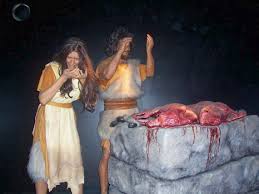
At some point after the judgments, Adam and Eve had to be forcefully escorted out of the Garden (Genesis 3:23-24). But until then, God evidently took the time to teach the two of them the life skills it would take in order to survive in the world outside the Garden. God also started the reconciliation process between Himself and man by teaching them that if they chose to be seen as righteous in His eyes, they would need to regularly perform a sacrificial ritual. This annual ritual would involve taking the life of an innocent animal in order to symbolically cover over their sins. The point of this rite was to show man that unrepentant rebellion against the will of God would only bring death (Romans 6:23). God also taught Adam how to build an altar of stacked stone and how to sacrifice an animal (Genesis 3:21). Because Adam and his family were vegetarians, the killing of an animal would have been abhorrent to their senses (Genesis 1:29). But that was exactly the point God was trying to make in that the act of sin was equally as abhorrent to Him. After sacrificing the innocent animal, God then took the skin from this first sacrifice and made clothing for the couple to wear in the world beyond the protection of the Garden. (Genesis 3:21). We later see Adam’s sons Cain and Abel performing this same ritual but with drastically different results (Genesis 4:1-7).
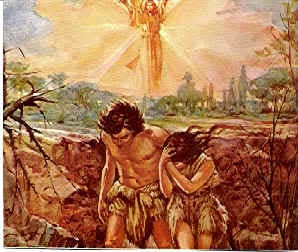
Some Jewish scholars believe that Eve gave birth to her sons Cain and Abel while still in the Garden with God instructing Adam on how to assist in the delivery process. Jewish scholars also believe Cain and Able were twins as Scripture uses the word “conceived” once concerning their births, but uses the word conceived twice concerning the births of the children of Leah (Genesis 4:1-2; Genesis 29:32-33). This makes the killing of Abel not only the first murder, but also the first act of fratricide. Finally, the day came when the couple had to leave the Garden of Eden. One would imagine that they went out from the Garden only as far as necessary before stopping to construct their new homes. Scripture is clear that Adam and his offspring lived in communal villages and not caves (Genesis 4:17).
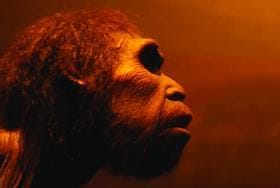
While there are ancient cave sites in Europe that show they were once home to a race of men known as Homo Neanderthal, they are not a race in the genetic line of Adam and Eve. It is now believed by some geneticists that the DNA of Neanderthal and modern Homo sapiens cannot interbreed (www.yourgenome.org). Interestingly, the term Homo sapiens is Latin for wise man. The Bible is silent as to who the Neanderthal were or what happened to them as they were never a part of the lineage of Adam. Dates concerning the remains of these people seem to suggest that they went extinct at the time of the arrival of the descendants of Adam who are referred to as modern man. Adam’s descendants were superior to them in both intellect and physical agility. Scripture tells us that Cain was banished from Eden and immediately established "a city". It also tells us that tents were developed by the children of Cain out of necessity when they developed the art of herding domesticated animals from one pasture to another and thus permanent home structures were impractical (Genesis 4:20). Again, Adam and his descendants never lived in caves as did the Neanderthal or Cro-Magnum man. They either lived in houses or followed herds by living in tents.
Further, it is interesting to note that while Adam and Eve were initially gatherers in the Garden, once they were expelled, they became farmers and shepherds. So, it is not surprising to discover that modern anthropological researchers now believe that ancient people were initially gatherers, but eventually transitioned to farmers, herders and eventually hunters. This is the same order of events that the Bible states in Genesis.
We read in Genesis that Adam passed down to Cain, Able and all of his children the sacrificial rites given to him by God. We are told that Cain was a farmer of crops and Able was a shepherd. Able would keep the animals safe, healthy, well fed and watered. In return, the animals would furnish him, his family and community with milk, cheese, wool and manure for the fertilization of crops. When an animal died of natural causes, their skins would be used for clothing, tents and the fat used as oil for cooking, lamps and as an antiseptic. The meat would have been used for fertilizer and the bones for various tools and adornments. We read that this same type planting method was employed by native Americans and settlers during the founding of Jamestown Virginia in 1607. God would not allow the descendants of Adam to eat meat until Noah left the Ark (Genesis 1:29; Genesis 9:3). It was at this time that mankind became hunters.
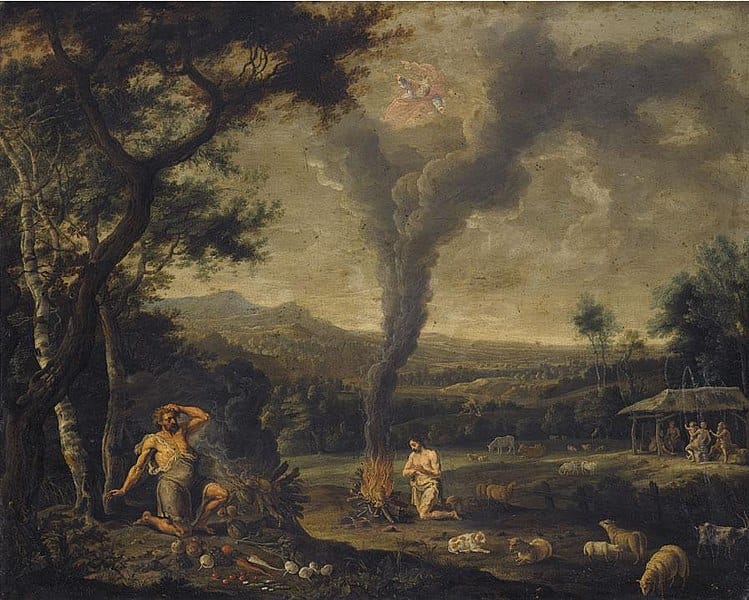
Able followed the rules of sacrificing an animal exactly the way he was taught by his father. But Cain decided he would substitute the life of an animal with the crops he grew from the ground. This was problematic in the eyes of God for two reasons. First, God was very specific on how an offering was to be made to Him by a repenting sinner. It did not allow the sinner to create their own worship ritual. Second, God had determined that the ritual for the forgiveness of sin must include a blood atonement which could only occur with the taking of the life of an innocent animal. This was because the sacrificial ritual was a shadow or type of the blood sacrifice Jesus would make four thousand years later for the remission of the sins of mankind. Therefore, it was not up to Cain or anyone to decide what was appropriate in how they sacrificed to God. God wanted it to become clear that His plan for the redemption of man was ultimately going to be based on the blood sacrifice of Jesus and He would not allow this prophetic act to be obfuscated down through the ages by men no matter how well intentioned. Third, putting aside the need for the life blood of a creature to cover a sin offense in the eyes of God, Cain used a plant sacrifice that came from the ground. God had cursed the ground so a sacrifice that originated from the ground was deemed as an unacceptable offering (Genesis 3:17).
Cain became very upset that God refused to accept his offering in the way he wanted to present it (Genesis 4:5-7). God always has the best of intentions towards His creations, but He does require obedience in order to solve the problems they create for themselves. At the same time, God will never violate a person’s inalienable right to take their own path through life. It is their decision and all decisions receive a reward, some good some bad. Prisons are full of people who made bad decisions and were ultimately justly rewarded for the result of those decisions. So, what was Cain’s problem with God?
First, he obviously wanted to decide how he would worship God. It was his way of worship or no worship at all. Secondly, as a gardener, he probably did not like the idea of a blood sacrifice. Third, he did not like having to rely on Abel for his sacrificial needs. And finally, he could clearly see that God loved Abel’s sacrifice more than He loved his sacrifice (Genesis 4:4). Therefore, Abel was most probably destined to receive the traditional spiritual blessing of God instead of it being given to him as first born. These issues were slowly driving Cain into a murderous rage. He apparently came to the inescapable conclusion that the only way to rectify the situation was to either talk to Abel and work things out between themselves, or Abel would have to die. As far as Cain was concerned, it was up to Abel to decide the outcome. God was aware of Cain’s mental state of mind, but He will never violate a person’s right to freely make their own decision on how to rectify a problem. God has only ever asked two things of His creations. Love and respect Him as their Creator and love their fellow man.
Readers most often think of Cain and Abel as teenagers, or young men during the time of this story, but this is not supported by Scripture. They may have been young or they may have been over one hundred years old. This would have been seen as young since a person at this time had a life expectancy of between 700 to 1000 years of age. This could mean that Cain’s hatred for Abel may have been building up for many years before it came to a boil. We also do not know if all people had such great longevity at this time, or was it reserved exclusively for the lineage of Adam in order to help create as large a population of God-fearing men as possible.
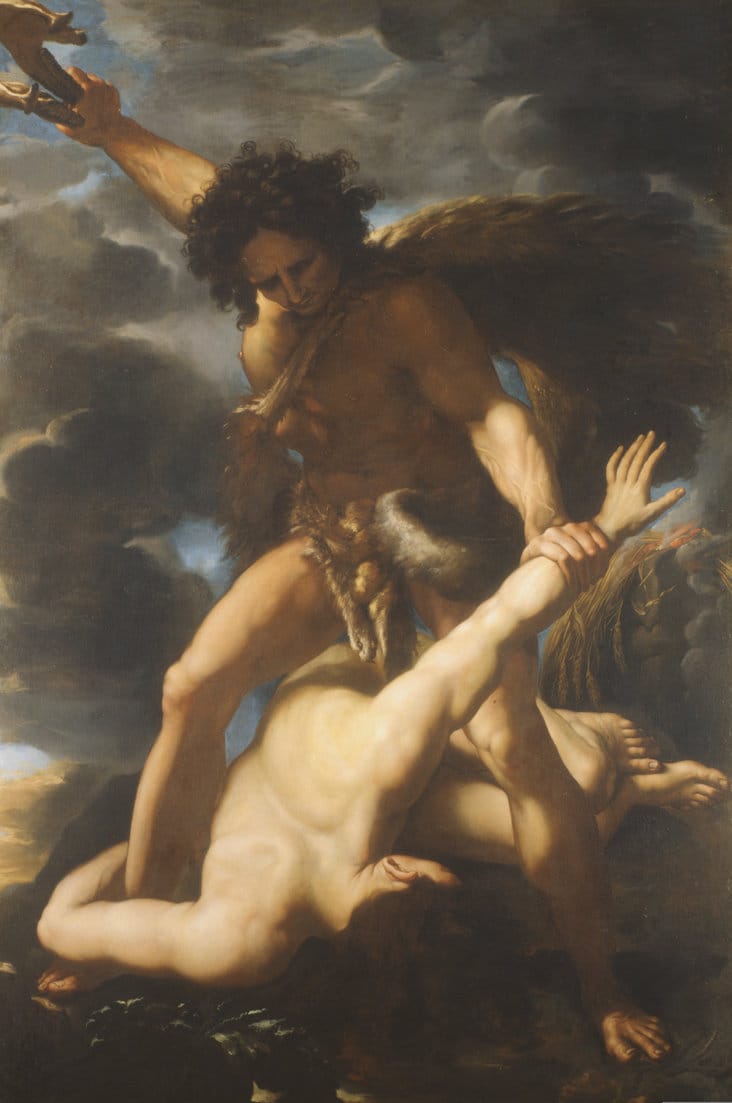
We read that one day Cain approached Abel while they were alone in a field. Cain made his feelings known to Abel about God, the blood sacrifices and a need to consider a better way to worship. He may have also brought up what he considered to be Abel’s scheming attempts to usurp his rights as first-born son. The discussion turned from a verbal disagreement to an argument which escalated into a fight. Cain got the upper hand and made a premeditated decision to use his advantage and kill his brother. Some scholars say he hit Abel in the head with a rock. Others say he drew a knife and slit Abel’s throat thus knowingly or unknowingly sacrificing his own brother to a God he no longer respected. Cain left Abel unconscious or perhaps dead with his flocks and went back to work in his fields. The problem was, God heard the desperate prayer from Abel for help and saw the spirit of Abel appear in Sheol the land of the dead (Genesis 4:10). Since this was the first spirit of man in the lineage of Jesus to appear in Sheol, it was impossible for God to not be aware of this event. God went immediately to personally talk with Cain to get a voluntary confession and a repentant plea for forgiveness. But Cain would have none of it. God asked him where was his brother. Cain famously answered, “How should I know, am I my brothers’ keeper?” (Genesis 4:9). Of course, Cain was in fact his brother keeper as are we all to each other, but it was clear to God that Cain had premeditatedly murdered his brother, lied to God’s face about his involvement, was completely unrepentant, did not respect the commands of God and did not love his fellow man.
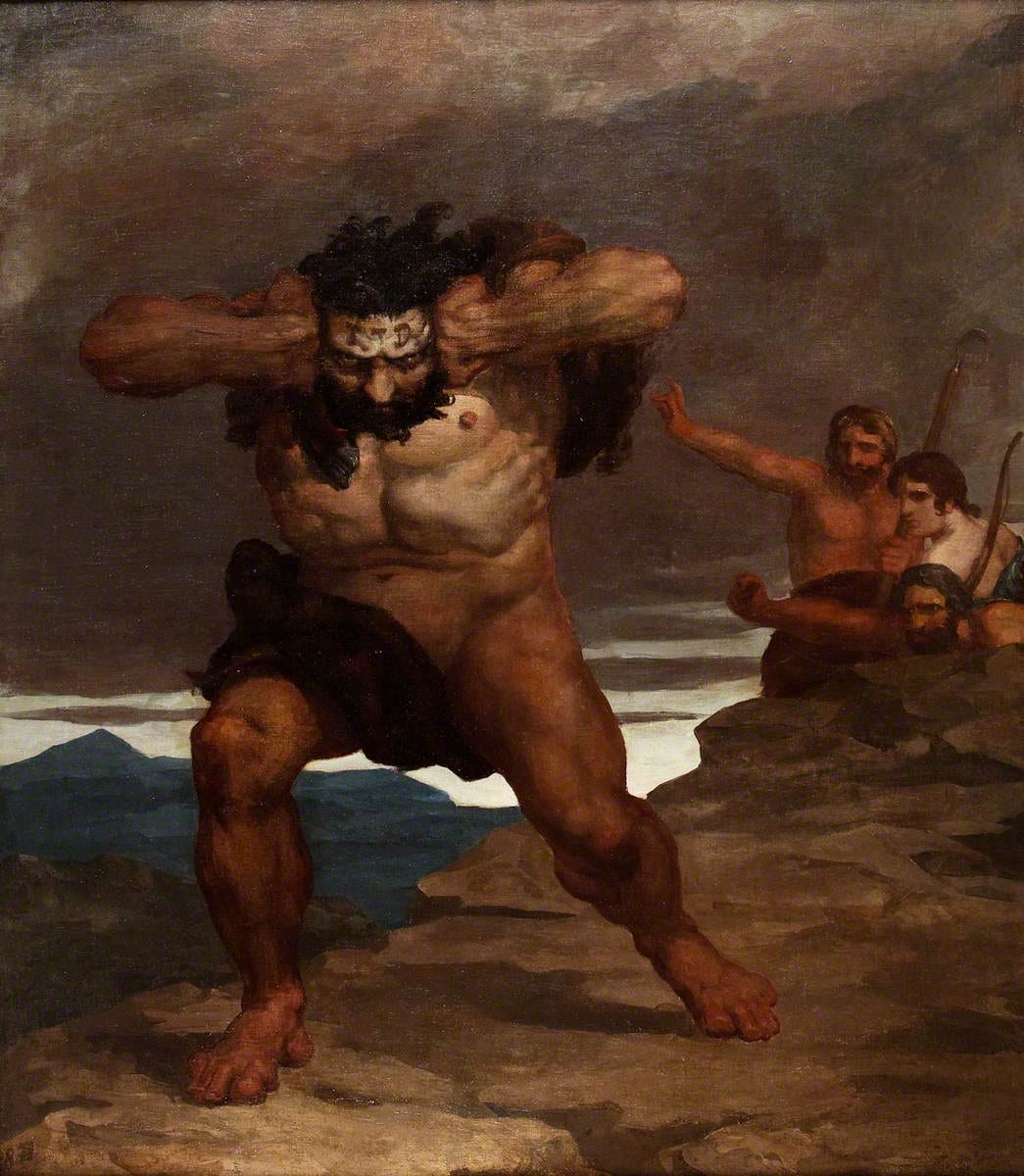
God decided to try, judge, convict and sentence Cain right there on the spot. His punishment would be banishment from God’s presence, his family, his farm and the land of Eden. Cain only became emotional after hearing what he considered to be an overly harsh sentencing. He did not repent of his actions and ask for forgiveness. Instead, he said that his punishment was beyond his ability to endure. In other words, he felt his punishment was greater than the crime. He had no empathy concerning the unjust punishment he inflicted on Abel for no reason other than he would not go along with Cain’s rebellion against God. He only felt sorry for himself in that he would now be banished from his family, community and the fields he had worked so hard to cultivate. He would now be forced to leave the land of Eden and become a wanderer in foreign lands that he was not familiar with. And he worried that the unknown world beyond Eden might be filled with people who, in finding out what he had done, would seek to kill him out for fear of who he was, or in righteous retribution for his crime of premeditated murder. In fact, he feared that his death by the hand of another man might even cause that man to brag about the wrong he had righted. Cain’s death would be seen as a positive status symbol for that person. In short, he saw himself as a wanted man for the crime of murder with a bounty on his head. And as if this was not enough, his final curse from God was that any land he settled in would be impossible for him to personally cultivate as he had caused the Earth to drink the innocent blood of his brother (Genesis 4:11-14). It would be up to Abel’s parents Adam and Eve to find Abel and bury him. This would be the first death by murder and burial of a person in the lineage of Jesus who would bring life back to the dead.

Because there was no law against murder at this time, and because Cain was Adam’s first born, God in His mercy decided to give Cain a second chance at redemption. First, He did not strike Cain dead for his crime. Second, He banished him but gave him a mark so that any person that he came in contact with would not seek a revenge killing on him (Genesis 4:14). We do not know what the mark looked like or where the mark was located, but we can assume it was in a prominent place for all to immediately notice. The Antichrist will one day demand that all people denounce their faith in God and instead carry the mark of their allegiance for him. In this case, the mark will be located on the forehead or the right hand. Therefore, Cain’s mark may have also been located in one of these places (Revelation 13:16-17). God also said that anyone who killed Cain would suffer vengeance seven times over (Genesis 4:15). Cain then packs his belongings and appears to leave the land of Eden alone as there is no mention of a wife. However, in the following verse, Cain is now settled in the land of Nod, has a wife and she gives birth to a son at which time Cain builds a city (Genesis 4:16-17).
There has always been a question as to when and where did Cain find his wife. Adam lived to be 930 years of age. We may assume that Eve lived about as long. If these two genetically perfect people started having children at age 100 and continued to have children until they were 600 years old, that would make at least 500 years of fertility. If we assume they produced a number of twins and triplets, we can estimate that the two may have produced many hundreds of children for both Cain and Abel to turn to for wives (Genesis 5:4). At the same time, their children were marring and the population was growing exponentially. Because Cain and Abel were as genetically perfect as their parents, there would have been no chance of any physical or cognitive issues with their offspring at this time. But the curse of ageing also involved a slow but ongoing genetic breakdown.
Over the generations, gene mutations would eventually produce disastrous physical and mental effects on populations that practiced inbreeding. Genetic studies currently show that the modern human race can be traced back to approximately 10 males and 18 females (N.Y. Times, May 2, 2000, Section F, pg. 1). Cain knew that he carried a curse from God but was not sure if that curse included an inability for him to produce an heir. Therefore, it was a great relief to him when he fathered a son who he named Enoch or Hanoch which means consecration. This name was fitting in that he now had proof that he could produce children and start a dynasty (Genesis 4:17). This was not the later Enoch that walked with God and was the first person in Scripture to be raptured (Genesis 5:22). Scripture is not clear as to whether Cain married a family member before or after he killed Abel, or if he found a wife while wandering in the land of Nod. But God did allowed Cain to eventually find a suitable land to settle and allowed his wife to give birth and start a family. Cain went on to found a city and a large successful dynasty from which came the arts and sciences (Genesis 4:17).
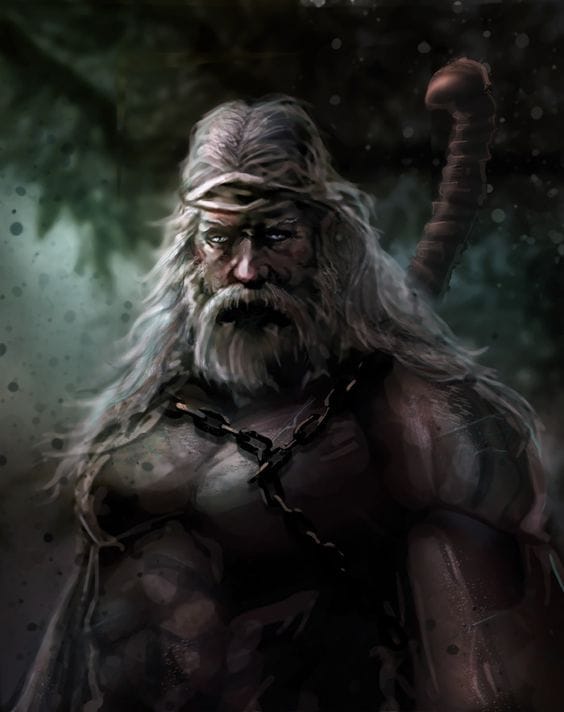
To establish a city would have required more assistance than just Cain, his wife and a young son could provide. Where these people may have come from is not mentioned in Scripture. There is no information in Scripture concerning Cain’s last words to his parents as he left the Land of Eden. But this situation obviously brought the pain that God prophesied would come to Eve through her children. Cain leaves Eden headed east into the land of Nod or the unknown (Genesis 4:16). The name Nod denotes a land of banishment, flight from punishment and a vagabond who continually wanders. It is the exact opposite of Eden (Wikipedia, “Land of Nod”). He headed due east from Eden by continually following the rising sun each day. This gave him some solace in that he knew the direction of his home even though he could never return.
The Bible only traces Cain’s lineage to the 7th generation from Adam or the birth of Lamech (Genesis 4:18). Cain had been given an opportunity by God to create a new life in a new land in the hopes he would repent of his sins and return to Him. Cain founded what would have most probably been called at that time the Land of Cain. He also established his own tribe of kinsmen called Cainites or Kenites and no doubt as tribal chief accrued great wealth and power. But sadly, Cain did not only, “leave the presence of the Lord”, he took this opportunity for a fresh start to create his own pagan god Baal or lord god of fertility (Genesis 4:16-17). In fact, we read a brief passage in the Epistle of Jude concerning Cain. Jude is warning the followers of Christ that there were false teachers with false doctrines trying to draw them away from the truth of the Gospel and the one true Creator God. Then in verse eleven, he writes, “Woe unto them! For they have gone the way of Cain, and ran greedily after the error of Balaam for reward…” (Jude 1:11). Balaam is famously known for going against the direct command of God concerning his efforts to corrupt the children of Israel. Balaam was offered money for this service by a king and so he ignored God and caused the Jews to compromise themselves by having sexual relations with local pagan gentiles. Cain was the first person to create a false religious doctrine based on his ideas concerning the type of god he wanted and the way he wanted to worship. God had been very patient and kind with Cain hoping he would reconsider his actions towards Him and His simple worship requirements (Genesis 4:5-7). But Cain was now more concerned with the comforts of his new life in a foreign land, growing an empire and obtaining power and wealth. He had no time nor desire to follow the commands of his Creator. Cain would be killed before the great flood of Noah but remarkably, his lineage was able to survive and live on by way of his great granddaughter Na'amah. See related: "Why Noah Cursed His Stepson".
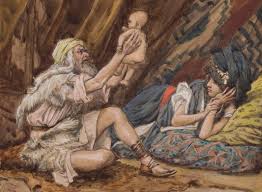
Noah’s wife at the time of the flood was named Na’amah or Sethite Naamah, the sister of Tubal-cain a direct descendant of Cain (Genesis 4:22; Rashi (Rabbi) Shlomoyitzchaki, 1040-1105; Washington Post, ‘Noah’s Wife Revealed’, Sept. 2, 1995). She is not credited with giving birth to Noah’s sons although this is not unusual as most women are marginalized in the Bible. But only to say that Noah who lived to be 950 years old, may have outlived his first wife and perhaps a second wife before he married Na'amah (Genesis 9:29). Scripture only gives the ages of the patriarchs and their male descendants. It does not state if all people or their wives also had their great longevity. For example, the wives of Abraham, Isaac and Jacob all died before their husbands.
Noah had three sons. The first was Japheth who is the father of the Europeans. Shim, the father of the Jewish race and Ham, the father of the people of color. So, it would seem that Noah’s first two sons had the same mother. But Ham his youngest son, must have been born from a different wife. If Na’amah was Noah’s third wife, she would have been the step mother to his three sons. Scripture tells us Noah and his sons left the ark. Then it suddenly states that Ham was the father of Canaan. This is strange that only the name of this child of Ham’s is listed with Noah’s other three sons. And Scripture is not necessarily saying that Canaan was on the ark but only that Ham fathered the child (Genesis 9:18). Three sons boarded the ark and now a fourth male is cited in the story. Ham obviously had a son named Canaan after the flood but Scripture does not say who the mother was and does not mention any other children. Immediately after we learn of Canaan, we are told of an incident in which Noah’s youngest son Ham went into Noah’s tent and found him asleep and unclothed due to drinking an excessive amount of wine. Ham told his brothers who went and put a blanket over their father. When Noah awoke from his sleep, scripture says that he immediately knew what his son Ham “had done to him” (Genesis 9:24). Noah then pronounced a curse on Ham’s son Canaan (Genesis 9:25). This incident has always puzzled scholars as to why Canaan received the curse and not Ham. Scholars have two scenarios as to what took place in the tent and why Canaan was cursed.
First, Noah was humiliated by Ham when he told his two brothers about what he saw. He wanted to curse Ham for his disrespect and insensitivity. But that would reflect badly on him and his parenting skills as his father so instead he cursed his son Canaan. Or, Noah awoke and discovered that Ham had a sexual encounter with his step mother Na’amah who later gave birth to Canaan. This would mean that Noah now had four sons and thus he would now have to divide his estate four ways instead of three. This meant that Ham would receive a double portion of all that Noah had by way of Canaan. Also, and perhaps more importantly, with the birth of Canaan, Cain’s unrighteous gene pool would have miraculously survived the flood instead of being terminated forever. In other words, as a direct descendant of Cain, Na’amah would have passed on Cain’s gene pool to her son aptly named Canaan a derivative of Cain (Corinne E. Blackmer, ‘Judaica Ukrainica’ I, 2012, Pg. 33). This would have been the major reason Noah became so incensed that he put a prophesied curse on a grandson of Cain. If this last scenario is true, then the human race does not descend only from Seth by way of Noah. It also descends from Cain by way of Na’amah! And this would be the reason why this incident was cloaked in a way that both stated what actually happened without going into the tawdry details of drunkenness, the possible rape of Noah’s wife Na’amah, an illegitimate child born of adultery and the continuance of Cain’s wicked lineage. The Canaanites would eventually intermarry with the Philistines and became a fierce and constant enemy of God’s chosen people and contest their claim to the promised land.
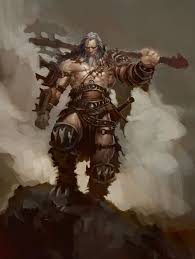
Around 1,500 B.C., Moses led the children of Israel out of Egypt and back to the Promise Land. At the border, the people demanded that spies be sent into the land known as the Land of Canaan, to judge the strength of the current inhabitance. The spies returned saying that the land was not only full of Canaanites, but there were also Nephilim or giants in the land (Numbers 13:31-33). This mutant hybrid race was thought to have been destroyed in the flood. But now we understand that the genome of the Nephilim originally imbedded in the tribe of Cain was in Noah’s wife Naamah, a great, great granddaughter of Cain, who then passed it on to her son Canaan (Genesis 6:4). He then passed on this gene to his offspring which once again produced Nephilim. This hybrid race remained in the land of Canaan up until the time of King David or c.1000 B.C. God repeatedly told the Israelites to completely destroy the Canaanites (Exodus 23: 22-24,27-32, Exodus 34:11-12; Judges 1:27). But instead, the Jews allowed the Canaanites to continue living in the land. Later, around 1,200 B.C. the Philistines migrated from Crete/Minoa and settled in Israel along the coast line of the Mediterranean Sea. They would eventually intermarry with the Canaanites. It was David who fought the giant Goliath, a solider in the Philistine army but who was obviously genetically tied to the antient tribe of the Canaanites. David, with the help of God, killed Goliath and his men would later kill his four brothers. The last of the Nephilim to be killed was King Og of Bashan thus finally terminating the race (II Samuel 21:15-22; Numbers 21; Deuteronomy 3:11; Psalms 135:11; Amos 2:9). The tribe of the Philistines was eventually defeated by the Assyrians and later disappeared as a race.
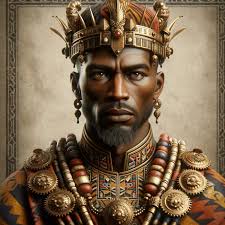
Noah publicly humiliated Ham for whatever he had done in the tent. Noah also placed a curse on Canaan prophesying on behalf of God that he and his people would always serve the people of Japheth and Shem. This public shaming was most probably what caused Ham to leave his home land and discover the new world created by the recent flood. Ham’s race of people fearlessly explored and charted the entire Earth establishing cities, cultures and empires. His son Canaan, decided to follow his father’s lead and traveled west and then south to settle in the land between the Jordan River and the Mediterranean Sea. He would name this land after himself or Canaan Land. Prophetically, this would be the land promise by God to Abraham and the descendants of Noah’s son Shim who received the spiritual blessing of God. Shim is the father of the tribe of the Jewish race referred to as Shimites or the corrupted modern word Semites. Those who dislike the Jewish race are termed anti Shimites or anti-Semitic. Canaan’s lineage would produce Nimrod who Scripture refers to as a brutal beast of a man who hunted down and destroyed all those who would not bow to him as their supreme ruler (Genesis 10:8-12). Nimrod would establish the great city of Babylon and build a tower to worship creation and not the Creator. This in turn would cause Babylon to become the birth place of all the false religions of the world (Revelation 17:1-6). Nimrod was only the first of many antichrists (I John 2:18). The Canaanites would continue in the footsteps of Cain and create yet another pantheon of false gods after the flood. The Canaanites capital of Jericho dates back to c.9,000 B.C. making it the oldest occupied city in the world (Encyclopedia Britannica).
This dating does not challenge a 4,000 B.C. date for the creation of Adam and Eve as they were apparently a one-off unique creation by God to serve as the initial bloodline of Jesus the Christ. The famous walls of Jericho were built in c.8,000 B.C. This civilization grew to include the areas of Lebanon, Israel, Jordan and part of Syria. It was a morally corrupt civilization that also included Sodom and Gomorrah. It was eventually destroyed by Joshua and the Israelites in the battle of Jericho c.1,500 B.C. (Joshua 5:13; Joshua 6:27). Today, the Caninities are the people of Lebanon located directly north of Israel’s border. Their modern genetic DNA tested 90% similar to that of the 4,000-year-old Canaanite remains discovered in Israel (National Geographic, July 27, 2017).
Cain Meets His Maker
Genesis Chapter four starts with great expectations concerning the birth of Cain and Abel yet sadly ends with Cain murdering his brother (Genesis 4:1-16). This event is then immediately followed by a brief listing of the genealogy of Cain that ends with the 6th generation and the birth of his great, great grandson Lamech (Genesis 4:17-18). This would be the 7th generation from Adam. As we continue this narrative, please keep in mind that the number 6 is the number of man and the number 7 is the number of completion. So, in only a few short verses we have quickly gone from Cain now a convicted murderer, to a review of his blood line, to the birth of his grandson.
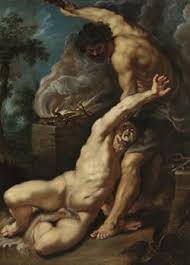
We now immediately read of Lamech telling his two wives about a brutal act of violence and murder he was recently involved in (Genesis 4:19-24). The description of his exploits is curiously written in the Bible in the form of an ancient or archaic Hebrew poetical style. In fact, this is the first poem recorded in the Bible. And what is even more intriguing is that it is about the second murder of a man. This time the murderer is Lamech and his violent act has been immortalized for some reason by turning it into a heroic poem. The poem is referred to as, “The Song of the Sword”. In this poem, Lamech is literally bragging about his strength, courage and his right to kill a man. He even goes so far as to state with great certainty that he believes he is protected by God concerning his actions because of who the person was and the way the events unfolded. Thus, this particular killing cannot be revenged by God nor the man’s family and his own reputation remains above reproach.
Also, just one verse before the poem, we read that Lamech’s son Tubal-Cain, named after his grandfather, worked in the art of metals and was considered an accomplished metal smith (Genesis 4:22). He would have created household objects, farming tools and weapons. No doubt he presented his father Lamech with some of his inventions. And no doubt Lamech felt that the weapons gave him a sense of personal safety, power and dominance over any would be attacker. Scripture tells us that at this time, “… the wickedness of man was great in the Earth, and that every imagination of the thoughts of his heart was only evil continually.” (Genesis 6:5)
Lamech began his boast in an imperious manner and demanded the full attention from his two wives. He is the first man listed in the Bible as being in a polygamous relationship which is against the original Marriage Covenant God made with Adam and Eve in the Garden. One wife is named Adah which means The Adorned and the other wife is named Zillah which means Shady or The Tinkling. He had three sons. One was named Jabal who was the father of nomads and who invented the tent so as to more easily change pasture locations. This may also suggest that this tribe ate meat which was against the law of God until after the flood of Noah (Genesis 1:9). One was named Jubal who was the father of string and wind musical instruments. And one was named Tubal-Cain who worked in brass and iron and produced various useful objects and edged tools. He also had a daughter called Naamah which means Lovely or Graceful. She would marry Noah and was possibly involved in the birth of Ham’s son named Canaan.
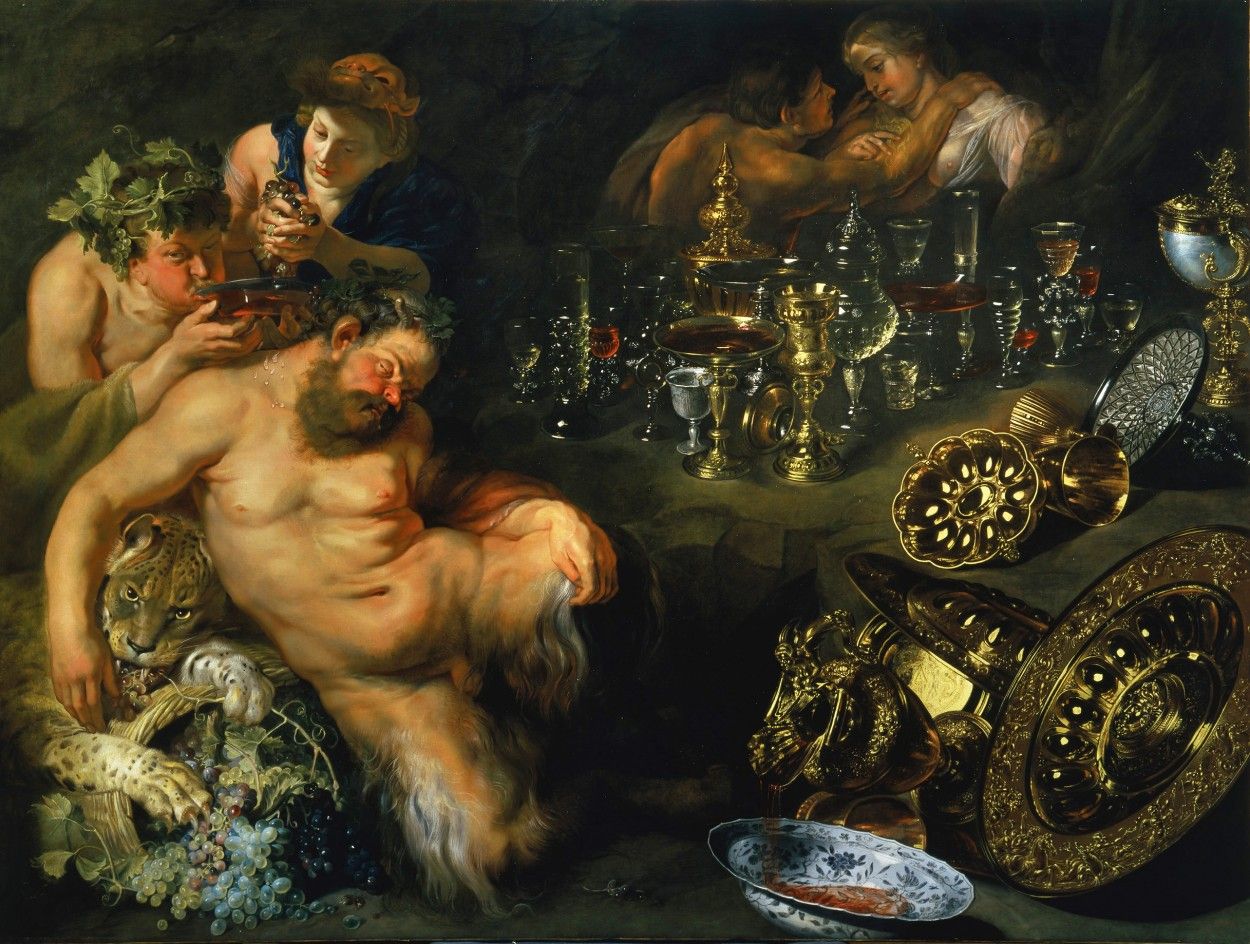
Lamech proudly announces to his two wives that he has killed a man. And not just any man but a “young man”. The term young can literally be interpreted as a man who was at the peak of his strength, yet Lamech was still able to overtake and kill him. But figuratively the term young could refer to this particular man being young as in he was born in the early times when the sons of Adam were first on the Earth. The first man created in the image of God was Adam. The first or youngest man created in the image of Adam would be Cain who was not only alive at the time of Lamech but he was also his great, great, great grandfather.
Lamech’s wives were understandably upset and scared not only about the act of taking a life but apparently whose life was taken. Cain was known as a violent man who had murdered not only his own brother but possibly twin brother in cold blood. He was also the founding tribal leader of the now great and powerful Canaanite nation. It was also widely understood according to Cain, that God the creator of Adam had personally put a curse on anyone who sought to harm or kill him (Genesis 4:15). Thus, they would have been rightfully afraid that the family, friends and armies of Cain would come and kill not only Lamech, but possibly them, as his wives, and their children to the seventh generation (Exodus 34:7). Not to mention the destruction that would certainly come upon the people of Lamech as promised in the curse of the vengeful God of Adam. Lamech went on to explain that he was insulted by this man who was the first to lose his temper. The man then had the audacity to strike him so hard that it bruised him. Then the man went on to actually wound Lamech. At this point, Lamech concluded that he was now in a life and death struggle with a known murderer. But he also knew that he had his sons’ superior metal weapon at his side which was sharp enough to easily inflect a mortal wound. Therefore, Lamech made a hasty decision as did Cain against his brother Abel. He took out his weapon, struck and killed the man (Genesis 4:23).
Thus Cain, the first murderer of the world was killed by his own great, great grandson Lamech, using the world’s first weapon of war made by Cain’s own great grandson Tubal-Cain in a family dispute. Lamech not only appears excited and proud about who he has killed, but also under what circumstances the killing took place. And there is a very real reason why he feels unconcerned about any possible reprisals concerning his actions.
Bible commentators take this short yet remarkable incident to mean one of two possibilities. Lamech is boasting to his wives that he has killed a man or possibly two men with one being younger than the other in an act of self-defense. Therefore, if someone were to revenge these deaths, it would bring a seventy sevenfold curse from God on themselves. A second understanding of this verse is that Lamech was very upset that he had killed a man and he is venting his guilty conscience to his wives. At the same time, he is also trying to calm their fears of him harming them or of possible retribution from Cain’s family. He is saying that God will protect him because self-defense is permissible in the eyes of God. The Barnes Commentary notes give no less than four different interpretations on this event. But the verse contains several direct clues that point directly to Lamech.
Lamech recounts the events to his wives in these exact words, “… hear my voice; you wives of Lamech, harken to my speech: for I have killed a man who attacked me, a young man who wounded me. If Cain shall be avenged sevenfold, truly Lamech {will be avenged if killed} seventy and sevenfold” (Genesis 4:23-24).
Another interesting point in this announcement from Lamech is his understanding of God’s sevenfold vengeance statement. He believes that the curse was not to be understood as protection for Cain’s life. Instead, God was prophesying the amount of punishment that Cain would receive if he remained an unrepentant murderer throughout his life. And, that his life would come to an end after 7 generations from Adam. Cain was apparently given this time to repent of his sins and return to the presence of God. Instead, Cain continued in his ungodly ways and died in his sins at the hands of his own great grandson Lamech. Because Cain remained unrepentant, at his death, his spirit was perhaps the first to enter the torment side of Sheol or Hell as a murderer. As opposed to Abel’s spirit which was the first to enter the Paradise side of Sheol (Luke 16:19-31). Abel may also be the first to receive his rewards at the Bema Seat of Christ while Cain may be the first to be judged at the terrible Great White Throne Judgment Seat of God at the end of Christ’s 1,000-year reign on Earth. Lamech’s understanding was that Cain received his just rewards befitting his crime. He died at the time God had prophesied or in the 7th generation from Adam, in a violent manor as did his innocent brother Abel. Yet Lamech killed him in self-defense as witnessed by all those present. Therefore, Lamech was innocent of a crime due to self-defense. As a blood revenger for Abel, Lamech had the honor to serve as the judgment hand of God in this particular killing, and thus a hero deservedly remembered in poem and song.
Timeline Of The Killing Of Cain
Adam and Eve sinned against God. God pronounces a series of curses on them and the Earth only to be lifted with the life, death and resurrection of “the Seed of the woman” or Christ. Adam is told by God that he will now need to sacrifice a living creature if he wants to have his sins covered. God shows Adam how he is to perform this ritual sacrifice. God then fashions clothing out of the skin of the first animal sacrifice and the couple are eventually driven out of the Garden. God appears to have taken time to instruct the couple on the skills they would need in order to survive in the outside world. Eve may or may not have given birth to twins Cain and Abel while still in the Garden. Eve may have had daughters before, between or after the births of her two sons. When the boys reach the age of accountability for their sins in the eyes of God, they were required to bring sin offerings to be sacrificed in the fashion God taught to Adam. Abel brought the required offering of an animal from his flocks. This sacrifice was a shadow event of the sacrifice of “the Seed of the woman” or Jesus at the cross. Cain rebels against God by becoming self-willed, having hatred towards his brother and refusing to perform the God directed blood sacrifice ritual. Instead, he offers a sacrifice of produce from his crops. God rejects Cain’s sacrifice and Cain in return rejects God. Cain meets privately with Abel in a field. A fight breaks out and Cain murders Abel. God confronts Cain who denies involvement in the crime. God banishes Cain from Eden and gives him a mark so that no one will revenge the death of Abel by killing Cain thus giving Cain time to repent of his sins against man and God.
This curse would fall not only on anyone who murders Cain for revenge, but also on Cain at his death if he had not repented of his crime against his brother Abel. God says, “…Therefore, whoever kills Cain, vengeance shall be taken on him sevenfold” (Genesis 4:15). The question is, who is being referenced in the word "him"? It most probably means that anyone who purposefully hunts down Cain and kills him for revenge, monetary gain, or for recognition will receive from God a sevenfold punishment. It may also mean at the same time, if Cain remains unrepentant of the murder of his innocent brother and dies in his sins, God will pronounce a sevenfold vengeance on Cain at the Great White Judgment.
To review the facts so far, we know that according to Scripture generation timelines, Cain was still alive when Lamech was born and growing up. We know that Cain was capable of violence and a convicted murderer. We may assume Lamech was also violent as he is in the lineage of Cain and literally bragging that he had killed a man. The term “a young man” could be referring to Cain who was one of the first or young men to ever be born. We know that his two wives would have been upset at this news as their lives may now be in danger of a revenge blood killing of a tribal leader. He then states that he has no fear of revenge because he killed this man in self-defense. He then suddenly cites the curse that God said He would put on anyone who killed Cain. Then he states that if anyone kills him, an innocent man due to self-defense, they will be the one to not only receive the original sevenfold vengeance of God on their head as previously stated but, also a second seventy and sevenfold judgment as they have killed both an innocent man and the man who apparently killed Cain. There can be no other reason Lamech would bring up the curse that was on Cain when referring to the event other than he was now involved with the death of Cain and explaining away the issue concerning the curse. Lamech is carefully walking everyone through the rationale that now, whoever kills him, will inherit the original curse by God used to protect Cain for his murder of his brother Abel. But also, they will receive a second even greater judgement for killing an innocent man who was only defending himself from being killed by Cain. In other words, Lamech killed in self-defense which is the only way to not inherit the curse of God.
The Midrash is an ancient commentary on various parts of the Hebrew scriptural text. It is an interpretive system written by respected Jewish scholars that attempts to reconcile apparent Biblical contradictions and thus enrich Biblical content by providing meaning and understanding. In the Middle Ages, Jewish scholars recorded from oral tradition, a story that attempts to clarify the events surrounding the accounts of this event. The commentary begins with the conclusion that Lamech did kill Cain. The author came to this conclusion based on the Hebrew word ‘ish. This word in Hebrew means man but the word is only used two times in the Bible. It was used by Eve when she gave birth to Cain, “for I have gained a man or ‘ish (Genesis 4:1)”. And only one other time when Lamech uses the term when he says, “: for I have killed a man or ‘ish…” (Genesis 4:23). This is another definitive clue as to who the man is. But they wrongly conclude that the term “and a young man” is referring to a second person that Lamech also killed. Instead, the term “young man” is yet another clue that once again refers to Cain being a young or early man in the creation story. Unfortunately, they then concoct a ridiculous story in which Lamech is blind yet decides to go hunting. He takes his son Tubal-Cain with him to spot the game and then point him in the right direction to shoot it. Tubal-Cain points out to Lamech what he thinks is a deer and Lamech shoots it. But they find to their horror that they have instead shot and killed Cain. Lamech is so overwrought that he claps his hands together not knowing that Tubal-Cain’s head is in the way. His hands strike Tubal and he dies (Midrash- Tanchuma to Genesis 11).
There is a lot to unpack in this story line. First, why would a blind man go bow hunting. Second, why is Cain the tribal King of the great nation of the Canaanites, creeping around alone in the woods. Third, how was Tubal killed with a clap of Lamech’s hands? Fourth, if Lamech had killed his son in the story, would it not be listed in the Biblical account. And finally, when he told his wife of her son’s death by his own hands, would we not read that his mother was upset with Lamech and mourned the loss of her son?
The actual story is much simpler and understandable. Two related men known for their bad tempers got into a fight and one was killed. Sadly, we hear of this type event every day on the evening news. Lamech was beaten and wounded but extremely happy that he was alive. He was excited that he was able to save himself from certain death by using a weapon fashioned by his son. He was relieved that he was legally incapable of being convicted of the killing as it was in self-defense. And last but not least, he was proud to the point of being boastful that he had served as the righteous hand of God in executing Cain at the appointed time and, in a violent manner similar to the way he killed his brother Abel hundreds of years earlier. Cain would now in death rightfully receive the long awaited 7 fold vengeances of God. But his killer Lamech, would not experience God’s curse on the killer of Cain. And it was not lost on Lamech that the incident occurred during the 7th generation of Cain by his great, great grandson. While Lamech celebrated his triumph over Cain, little did he know that he would soon have his life suddenly ended by a great flood. The Lamech listed in the Bible as a patriarch that lived to be 777 years old is not the Lamech in the line of Cain. He is a descendant in the lineage of Seth yet he too was killed in the flood. So, the evidence is overwhelming that Cain was in fact killed by a great grandson Lamech and not in the flood.

On a final note, Peter asked Jesus if he was to forgive his brother as many as 7 times. The Jews allowed the same person to be forgiven for the same offence as many as three times. Jesus answered and said he was to forgive him 70 X 7 times (Matthew 18:22). This math equation is symbolic for infinity. Commentators believe that Jesus is giving a subtle reference to the story of Lamech. Lamech killed Cain in the 7th generation from Adam. When Lamech stated, “… I will be avenged 77 times”, he is unknowingly giving a prophecy concerning the cure for revenge. According to Luke, Jesus was born in the 77th generation from Adam (Luke 3:32-37). And while Lamech is the anthesis of Jesus, they do have a commonality.
Lamech, a son of Cain or man is focused on vengeance while Jesus, a son of Seth or God, is focused on forgiveness.
At first this would seem incongruous that a man like Lamech bent on vengeance would make a prophecy concerning the coming of Christ. But God has repeatedly used unrighteous men and nations to chastise His people and to reveal His ever-unfolding plan for mankind. The pagan and cruel King Nebuchadnezzar had a dream that involved the 5 great empires of the Earth ending with the Second Coming of Christ. God prophesied through the unrighteous Balaam (Numbers 24:1-9; Jude 11). God used the unrighteous High Priest Caiaphas when he prophesied that it was better that "one man should die than the entire nation be destroyed". And as we saw, one man was crucified and the entire nation was destroyed (John 11:49-52). Lamech simply thought he was using the numbers 7 and 77 to make a clever point concerning the generational length of time in which his murder would be revenged on the following generations as opposed to Cain’s death. But Jesus told His disciples that the cure for generational or eternal vengeance was eternal forgiveness. Otherwise, vengeance would be an eternal war in which everyone loses. Jesus forgave everyone including those that were carrying out His execution (Luke 23:34). Jesus’ forgiveness was eternal and He arose eternal. He now provides eternal forgiveness for the sins of mankind. Lamech, the king of vengeance, was unknowingly prophesying the coming of Jesus who would bring the only cure to end vengeance.
Just as believers are infinitely forgiven by God of their sins, believers are required to infinitely forgive their fellow man if they are to remain fully in the will of God. However, just because a believer forgives a person of their sins against them, it does not mean that God forgives that person. It simply means that God is well pleased in the forgiveness act of the believer. Love of one’s fellow man is an outward act of an inward change caused by the indwelling of the Holy Spirit. Vengeance is mine says the Lord (Deuteronomy 32:53; Romans 12:17-19).
If you enjoy the information provided on this site, please consider making a donation of any amount to help continue its production. Donate Now